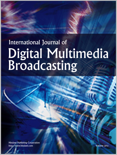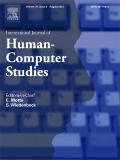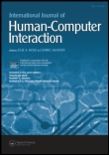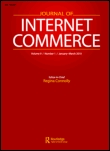
Computers in Human Behavior Reports
metrics 2024
Fostering interdisciplinary research for a tech-savvy future.
Introduction
Computers in Human Behavior Reports, published by ELSEVIER, is a distinguished open-access journal dedicated to advancing interdisciplinary research at the intersection of technology and human behavior. Since its inception in 2020, the journal has quickly gained a prominent position in the academic field, attaining Q1 category rankings in multiple areas including Applied Psychology, Artificial Intelligence, Cognitive Neuroscience, Human-Computer Interaction, and Neuroscience (miscellaneous). Its robust standing is evidenced by its exceptional Scopus ranks, particularly in Neuroscience—where it is positioned 4th out of 49 journals—demonstrating a high level of influence and engagement within the community. The journal's aim is to disseminate cutting-edge research findings and foster dialogue among researchers, professionals, and students alike, thereby addressing crucial questions regarding the impact of technology on human behavior and vice versa. As an open-access publication based in the United Kingdom, it not only enhances the visibility of research but also ensures wider accessibility to groundbreaking insights that shape our understanding of human-machine interactions.
Metrics 2024
 1.36
1.36 4.90
4.90 5.20
5.20 22
22Metrics History
Rank 2024
Scopus
IF (Web Of Science)
JCI (Web Of Science)
Quartile History
Similar Journals

Australasian Journal of Information Systems
Bridging Theory and Practice in Information Sciences.The Australasian Journal of Information Systems (AJIS), published by the University of Canberra’s Faculty of Information Sciences & Engineering, is a leading open-access journal that has been fostering scholarly communication in the realms of information systems and technology since its inception in 1993. With an ISSN of 1449-8618 and E-ISSN 1326-2238, the journal is headquartered in Australia and provides a platform for innovative research and thought leadership in key areas such as business management, human-computer interaction, and information systems management. Recognized for its quality and impact, AJIS boasts a commendable Q2 ranking in several categories including Information Systems, reflecting its relevance and significance in the academic community. Researchers, professionals, and students alike will find this journal not only instrumental for advancing their knowledge but also essential for engaging with contemporary issues and trends in information sciences. With a commitment to open access, AJIS ensures that high-quality research is widely accessible, fostering collaboration and discourse across international boundaries.

BEHAVIOUR & INFORMATION TECHNOLOGY
Fostering Knowledge in an Evolving Digital Landscape.BEHAVIOUR & INFORMATION TECHNOLOGY, published by Taylor & Francis Ltd, is a leading journal in the interdisciplinary field that bridges the gap between technology and human behavior. Established in 1982 and continuing through 2024, this journal has garnered a high reputation with impressive rankings in 2023 across various categories: Q1 in Arts and Humanities (miscellaneous), Q2 in Developmental and Educational Psychology, Q2 in Human-Computer Interaction, and Q1 in Social Sciences (miscellaneous). The journal's robust Scopus rankings point to its influence among peers, being placed in the top percentiles across multiple relevant disciplines. Although it does not offer open access, it remains a pivotal resource for researchers and practitioners interested in the dynamics of technology's impact on behavior. By publishing rigorously peer-reviewed research, BEHAVIOUR & INFORMATION TECHNOLOGY aims to foster insights that enhance our understanding of how information technology shapes human interactions and societal outcomes, making it a crucial publication for anyone engaged in this rapidly evolving field.

International Journal of Digital Multimedia Broadcasting
Empowering Knowledge in Digital BroadcastingThe International Journal of Digital Multimedia Broadcasting is a leading scholarly platform dedicated to the interdisciplinary exploration of digital multimedia broadcasting, published by HINDAWI LTD. With an ISSN of 1687-7578 and an E-ISSN of 1687-7586, this Open Access journal has made significant strides since its inception in 2008, ensuring wide accessibility and dissemination of research. Based in the United States, at Adam House, 3rd Flr, 1 Fitzroy Sq, London W1T 5HF, England, the journal covers a range of topics relevant to Communication, Electrical and Electronic Engineering, and Media Technology, boasting impressive Scopus rankings that highlight its influence in these fields. As part of the Q3 category in Communication and Electrical Engineering, and Q2 in Media Technology for 2023, the journal serves a vital role in fostering the understanding of technological advancements and their applications in multimedia broadcasting. Researchers, professionals, and students are encouraged to contribute to and benefit from the journal's rich repository of knowledge, paving the way for innovative developments in this dynamic industry.

INTERNATIONAL JOURNAL OF HUMAN-COMPUTER STUDIES
Bridging the Gap Between Users and MachinesINTERNATIONAL JOURNAL OF HUMAN-COMPUTER STUDIES, published by Academic Press Ltd - Elsevier Science Ltd, stands at the forefront of research dedicated to the dynamic interplay between humans and technology. With a remarkable impact factor reflective of its rigorous academic standards and its prestigious ranking in the Q1 category across vital disciplines such as Education, Engineering, Human Factors and Ergonomics, and Human-Computer Interaction, this journal serves as an essential resource for researchers, professionals, and students alike. Spanning from 1994 to 2024, it showcases pioneering studies that contribute significantly to the understanding of cognitive processes, usability, and the evolving role of technology in society. Despite the absence of Open Access options, access to this journal is facilitated through institutional subscriptions, ensuring that critical findings and advancements are readily available to a global audience. By continuing to publish high-quality research, the INTERNATIONAL JOURNAL OF HUMAN-COMPUTER STUDIES plays a crucial role in advancing the field, fostering innovation, and guiding future research directions.

INTERNATIONAL JOURNAL OF HUMAN-COMPUTER INTERACTION
Transforming User Experiences Through ResearchINTERNATIONAL JOURNAL OF HUMAN-COMPUTER INTERACTION, published by Taylor & Francis Inc, stands at the forefront of research within the interdisciplinary fields of human-computer interaction, human factors, and ergonomics. Since its establishment, the journal has consistently contributed to advancing the understanding of the interactions between people and computers, making it a vital resource for researchers, professionals, and students alike. With an impressive impact factor reflecting its high citation rate, this journal is recognized as a Q1 publication in both Computer Science Applications and Human Factors and Ergonomics categories for 2023, showcasing its stature within the academic community. Additionally, it boasts a commendable ranking within the top percentiles in key areas on Scopus, ensuring that the research published here reaches broad scholarly audiences. Available in traditional subscription format, the journal covers seminal studies from 1989 to 2024, reflecting ongoing innovation in technology and its applications in everyday life, and thus serves as an essential platform for pioneering research that shapes the future of user experience.

Computers
Empowering Scholars in Computer Networks and BeyondComputers is a leading journal published by MDPI, dedicated to advancing research in the fields of computer networks and communications, as well as human-computer interaction. Since its inception in 2012, it has established itself as a vital resource for scholars and practitioners, achieving an impressive Q2 ranking in Computer Networks and Communications and a Q3 ranking in Human-Computer Interaction as of 2023. The journal is indexed in Scopus, highlighting its relevance with a rank of #135/395 and #72/145 in their respective categories. Published in Switzerland, this open-access journal ensures widespread dissemination of research findings, supporting the global academic community in enhancing technologies relevant to computer science. Access options are available, fostering an environment where knowledge is shared freely. With an emphasis on innovation, redesign, and collaboration between humans and technology, Computers plays a crucial role in shaping the future of digital interactions.

Advances in Human-Computer Interaction
Empowering researchers to shape tomorrow's technology.Advances in Human-Computer Interaction is a premier peer-reviewed journal published by HINDAWI LTD, dedicated to the exploration of cutting-edge research and innovation in the field of Human-Computer Interaction (HCI). With an ISSN of 1687-5893 and an E-ISSN of 1687-5907, this Open Access journal has been contributing to the scientific community since 2008, offering unrestricted access to critical findings and advancements. Based in Egypt with an address at ADAM HOUSE, 3RD FLR, 1 FITZROY SQ, LONDON W1T 5HF, ENGLAND, it occupies a notable position in the academic landscape, reflected in its 2023 Scopus ranking of Rank #57/145 and a 61st percentile in the Human-Computer Interaction category. As a Q3 journal, it plays a crucial role in disseminating research that bridges the gap between humans and technology, providing valuable insights for researchers, professionals, and students pursuing expertise in this dynamic field. The journal’s converged years from 2010 to 2024 signify its ongoing commitment to advancing knowledge and fostering collaboration among HCI experts worldwide.

Journal of Internet Commerce
Empowering Research in E-Commerce ExcellenceThe Journal of Internet Commerce is a premier academic publication that plays a pivotal role in bridging the gap between technology and commerce, making it an essential resource for researchers, professionals, and students alike. Published by Routledge Journals, Taylor & Francis Ltd, this journal specializes in the fields of Human-Computer Interaction and Management of Technology and Innovation. With an impressive Q1 ranking in both categories and a strong Scopus ranking, it is recognized for its significant contributions, with positions of 17th percentile in Human-Computer Interaction and 39th percentile in Management of Technology and Innovation. The journal has been continuously published since 2002 and is committed to exploring the evolving landscape of internet commerce through rigorous research, case studies, and theoretical discussions. Although it does not offer open access options, the journal's high impact factor emphasizes its value in the academic community. The Journal of Internet Commerce is indispensable for those looking to stay at the forefront of high-impact research in digital commerce strategies and interactions.

Cognition Technology & Work
Empowering Scholars in Cognitive Technology InsightsCognition Technology & Work, published by SPRINGER LONDON LTD, is a premier journal dedicated to exploring the multifaceted interactions between cognitive processes and technological applications in various work environments. With an ISSN of 1435-5558 and an E-ISSN of 1435-5566, this journal has established itself as a critical resource for scholars and practitioners in the fields of Computer Science, Human-Computer Interaction, and Philosophy. Evaluated in the 2023 Journal Citation Reports, it holds impressive category quartiles, ranking Q2 in Computer Science Applications and Human-Computer Interaction, and Q1 in Philosophy, highlighting its significant impact in academic discourse. Furthermore, its Scopus rankings showcase its robust standing, particularly within the Arts and Humanities and Computer Science sectors. Adopting a rigorous peer-review process, the journal aims to foster scholarly communication and advancement in the understanding of cognitive influences on technology in the workplace. It serves as an essential platform for researchers, professionals, and students alike, providing insight into innovative methodologies and theoretical frameworks that shape the future of cognitive technology in work settings.

Cognitive Research-Principles and Implications
Unveiling the Dynamics of Cognitive Processes.Cognitive Research: Principles and Implications, published by SPRINGER, is a premier open-access journal dedicated to the dynamic field of cognitive neuroscience and experimental psychology. Since its inception in 2016, this journal has rapidly established itself as a leading platform for disseminating innovative research, achieving impressive rankings of Q1 in both Cognitive Neuroscience and Experimental and Cognitive Psychology in 2023. With a Scopus ranking of #16 out of 165 in Experimental and Cognitive Psychology and #28 out of 115 in Cognitive Neuroscience, it serves as a vital resource for researchers and practitioners eager to explore the intricacies of cognitive processes. Operating from its base in the United Kingdom, the journal offers open access to its articles, ensuring that groundbreaking research is widely available and can influence both academic inquiry and real-world applications. As the field continues to evolve, Cognitive Research: Principles and Implications remains an essential reference point for advancing understanding in cognitive science, making it an indispensable tool for students, professionals, and academics alike.